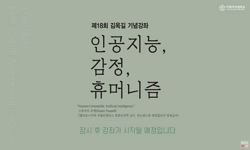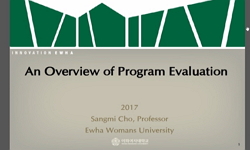Purpose: This study aimed to develop a case-based nursing education program using generative artificial intelligence and to assess its usability and applicability in nursing curriculums. Methods: The program was developed by following the five steps o...
http://chineseinput.net/에서 pinyin(병음)방식으로 중국어를 변환할 수 있습니다.
변환된 중국어를 복사하여 사용하시면 됩니다.
- 中文 을 입력하시려면 zhongwen을 입력하시고 space를누르시면됩니다.
- 北京 을 입력하시려면 beijing을 입력하시고 space를 누르시면 됩니다.


생성형 인공지능을 활용한 사례 기반 간호 교육 프로그램 개발 = Development of a case-based nursing education program using generative artificial intelligence
한글로보기https://www.riss.kr/link?id=A108723752
- 저자
- 발행기관
- 학술지명
- 권호사항
-
발행연도
2023
-
작성언어
Korean
- 주제어
-
등재정보
KCI우수등재,SCOPUS
-
자료형태
학술저널
-
수록면
234-246(13쪽)
- DOI식별코드
- 제공처
-
0
상세조회 -
0
다운로드
부가정보
다국어 초록 (Multilingual Abstract)
Purpose: This study aimed to develop a case-based nursing education program using generative artificial intelligence and to assess its usability and applicability in nursing curriculums. Methods: The program was developed by following the five steps of the ADDIE model: analysis, design, development, implementation, and evaluation. A panel of five nursing professors served as experts to implement and evaluate the program. Results: Utilizing ChatGPT, six program modules were designed and developed based on experiential learning theory. The experts’ evaluations confirmed that the program was suitable for case-based learning, highly usable, and applicable to nursing education. Conclusion: Generative artificial intelligence was identified as a valuable tool for enhancing the effectiveness of case-based learning. This study provides insights and future directions for integrating generative artificial intelligence into nursing education. Further research should be attempted to implement and evaluate this program with nursing students.
동일학술지(권/호) 다른 논문
-
시뮬레이션 교육이 간호대학생과 간호사의 의사소통 및 임상판단능력에 미치는 효과: 체계적 문헌고찰 및 메타분석
- 한국간호교육학회
- 박정민
- 2023
- KCI우수등재,SCOPUS
-
간호대학생의 임상 실습 전 예방접종 의도에 영향을 미치는 요인
- 한국간호교육학회
- 안가형
- 2023
- KCI우수등재,SCOPUS
-
- 한국간호교육학회
- 김근면
- 2023
- KCI우수등재,SCOPUS
-
간호대학생의 정치효능감과 간호전문직관이 정치참여에 미치는 영향
- 한국간호교육학회
- 우정희
- 2023
- KCI우수등재,SCOPUS




 ScienceON
ScienceON DBpia
DBpia






